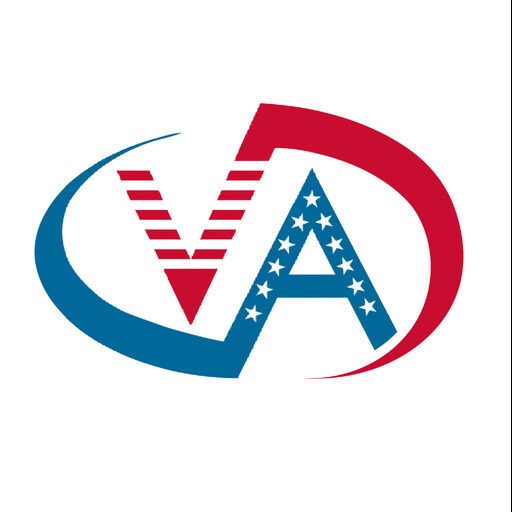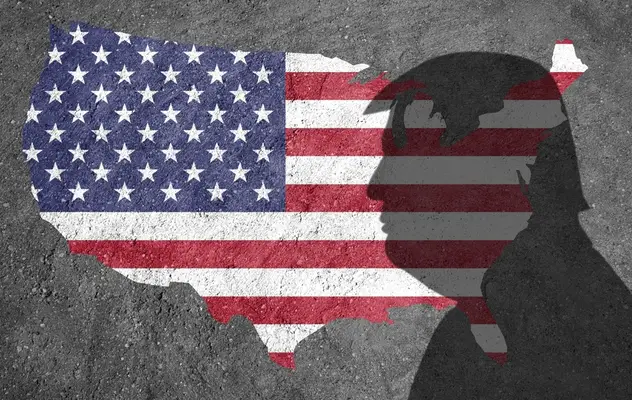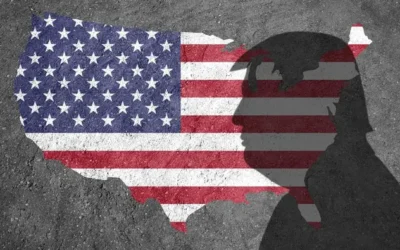As the 2026 presidential election approaches, many Americans are wondering how the outcome could affect the housing market.
A win for Donald Trump, who previously served as president from 2017 to 2021, would likely bring about significant changes in housing policy.
Trump’s past presidency was marked by economic growth and deregulation, but what would a second term mean for homebuyers, particularly Veterans?
This article explores potential housing policy shifts under a Trump administration in 2026, focusing on market trends, affordability, and Veterans’ access to housing.
Overview of Trump’s Housing Policies
During Donald Trump’s presidency, his focus was largely on driving economic growth through tax cuts and deregulation. While he didn’t implement sweeping reforms specific to housing, many of his economic policies had indirect effects on the housing market.
Trump’s overall approach leaned heavily toward reducing government intervention. His support for free-market principles, along with promoting homeownership via tax incentives and reduced regulation, shaped his stance on housing. If Trump were to win again in 2026, we’d likely see more of the same—policies aimed at bolstering the real estate market, lowering housing costs, and expanding opportunities for homeownership.
Potential Changes to Housing Policy Under Trump in 2026
Deregulation and Real Estate Markets
Trump has always been a strong advocate for deregulation, seeing it as a key driver of economic activity. Should he win a second term, we can expect a continued push to roll back federal regulations that impact the housing market. This could involve easing zoning restrictions, loosening environmental regulations, and simplifying the approval process for developers.
- Boosting housing supply: Deregulation could make it easier and cheaper for real estate developers to build, especially in areas where housing demand is high. More homes on the market would help ease the housing shortage, which has been driving up prices.
- Impact on Veterans: For Veterans, particularly those using VA loans, an increase in housing supply could make it easier to find affordable homes in competitive markets.
Expert Take: “Easing restrictions on housing development will create more opportunities for homebuyers across the country, particularly in areas where supply has been limited,” says Robert Carter, a real estate analyst at Veterans First Mortgage. “This could significantly benefit Veterans who often face tough competition in popular markets.”
Tax Policy and Homeownership Incentives
Trump’s first term saw the passage of the 2017 Tax Cuts and Jobs Act (TCJA), which provided tax breaks for both businesses and individuals. While this helped support the housing market to some degree, some homeowners in high-cost areas felt the pinch due to a cap on the mortgage interest deduction.
- Future tax reforms: If reelected, Trump may push for additional tax cuts, including measures aimed specifically at the housing market. We could see efforts to raise the cap on the mortgage interest deduction or new tax incentives for first-time homebuyers, including Veterans.
- Expanded tax benefits for Veterans: Veterans could see even more support in the form of increased tax deductions on VA loans or additional tax breaks for disabled Veterans.
Quote: “A Trump presidency could bring new tax relief measures, making it easier for Veterans to afford homes,” says David Morris, a mortgage consultant at Patriot Home Lenders. “These incentives would help reduce the financial burden of homeownership, especially in high-cost areas.”
Affordability and Housing Supply
The current housing market is still highly competitive, with rising home prices largely driven by a lack of available homes. According to the National Association of Realtors (NAR), the median home price in the U.S. increased by 5% in 2026, with metropolitan areas like New York and Los Angeles seeing even sharper rises.
- Trump’s impact on housing supply: Policies focused on deregulation and tax incentives for developers could lead to more homes being built, which would help moderate price growth in high-demand areas. Still, affordability remains a significant concern for many potential buyers.
- Veteran housing programs: With many Veterans relying on VA loans, a greater supply of affordable homes could make it easier for them to purchase property, particularly in urban and suburban areas where competition is fierce.
VA Loan Program Changes
Enhanced VA Loan Access
Veterans could see several potential changes to the VA loan program under a second Trump administration. His focus on reducing bureaucracy and improving efficiency could streamline the VA loan process, making homeownership more accessible for Veterans.
- Enhanced access to VA loans: Trump may push for changes that improve access to VA loans, such as raising loan limits in high-cost areas or reducing the VA funding fee for first-time homebuyers.
- Faster processing times: Efforts to cut through red tape could lead to faster loan approvals and simplified paperwork, a significant benefit for Veterans navigating the home-buying process.
Expert Opinion: “Trump has always been a strong supporter of the military, and we could see efforts to streamline the VA loan process, making homeownership more accessible for Veterans,” says Lisa Moore, mortgage advisor at Veteran Lending Solutions.
VA Loan Limits
While VA loans don’t have a set maximum amount, the VA guarantees a certain limit based on the county. In 2026, loan limits in high-cost areas like San Francisco and New York City were as high as $1,089,300, offering Veterans greater purchasing power.
- Increasing loan limits: If housing prices continue to rise, Trump could push for higher loan limits in high-cost areas to help Veterans compete in these expensive markets.
- Reducing the funding fee: Veterans could benefit from efforts to lower the VA funding fee, reducing the upfront costs of purchasing a home with a VA loan.
Interest Rate Trends and Economic Stability
Presidential elections often cause uncertainty in the financial markets, which can influence interest rates. If Trump is elected in 2026, we may see short-term fluctuations in mortgage rates as the market adjusts to anticipated economic policies.
- Interest rate outlook: The Federal Reserve has kept interest rates relatively low in recent years to support economic recovery. In mid-2024, the average rate for a 30-year fixed mortgage hovered around 6.5%. If Trump’s policies encourage continued economic growth, we could see stable or even lower rates in the short term. However, rising inflation could push rates higher.
Mortgage Rate Forecast (2026)
| Year | Average 30-Year Fixed Rate | Projected Rate Growth |
|---|---|---|
| 2026 | 6.5% | Stable |
| 2026 | 6.8% | Slight Increase |
| 2026 | 7.0% | Moderate Increase |
Benefits for Veterans Under Trump’s Housing Policies
Veterans, who often utilize VA loans to purchase homes, could see several benefits under a Trump presidency. These include:
- Increased Housing Supply: Deregulation and tax incentives for developers could lead to more affordable homes in high-demand areas, making it easier for Veterans to find homes within their budgets.
- Improved VA Loan Access: Trump’s focus on supporting the military could result in enhanced VA loan programs, including higher loan limits and reduced fees for Veterans.
- Tax Breaks for Veterans: Veterans could see expanded tax benefits related to homeownership, such as deductions on VA loans or tax breaks for disabled Veterans.
- Streamlined Loan Processing: Efforts to reduce government bureaucracy could make the VA loan process faster and more efficient, allowing Veterans to close on homes more quickly.
FAQs About Trump’s Impact on Housing Policy
1. Will a Trump win lower mortgage rates?
While interest rates are largely determined by the Federal Reserve, Trump’s economic policies may keep rates stable, though inflation could lead to slight increases.
2. How will Trump’s housing policies affect Veterans?
Veterans could benefit from enhanced VA loan access, streamlined loan processing, and expanded tax breaks, making it easier to afford homes.
3. Will housing prices drop under Trump’s administration?
Trump’s focus on deregulation could increase housing supply, potentially slowing the rise in home prices, but significant price drops are unlikely in high-demand areas.
4. Will Trump’s tax policies help homebuyers?
Trump may push for increased tax deductions for homebuyers, particularly Veterans, helping reduce the financial burden of purchasing a home.
5. What impact will deregulation have on the housing market?
Deregulation could lead to an increase in housing development, helping address inventory shortages and making homes more affordable for buyers.
6. Can Veterans expect any changes to the VA loan program?
Veterans may see improvements in the VA loan program, including higher loan limits and faster processing times under a Trump administration.
7. How will a Trump win impact the real estate market?
A Trump win could stabilize the real estate market by promoting growth through deregulation and tax incentives, though interest rates may rise slightly.
8. Will the Federal Reserve change interest rates after the election?
The Federal Reserve will continue to adjust rates based on inflation and economic conditions, but a Trump presidency may influence fiscal policies that impact the Fed’s decisions.

The VA Loan Network Editorial Team is comprised of dedicated mortgage specialists and financial writers committed to providing veterans and service members with accurate, up-to-date information on VA loan benefits, eligibility, and the home-buying process.





